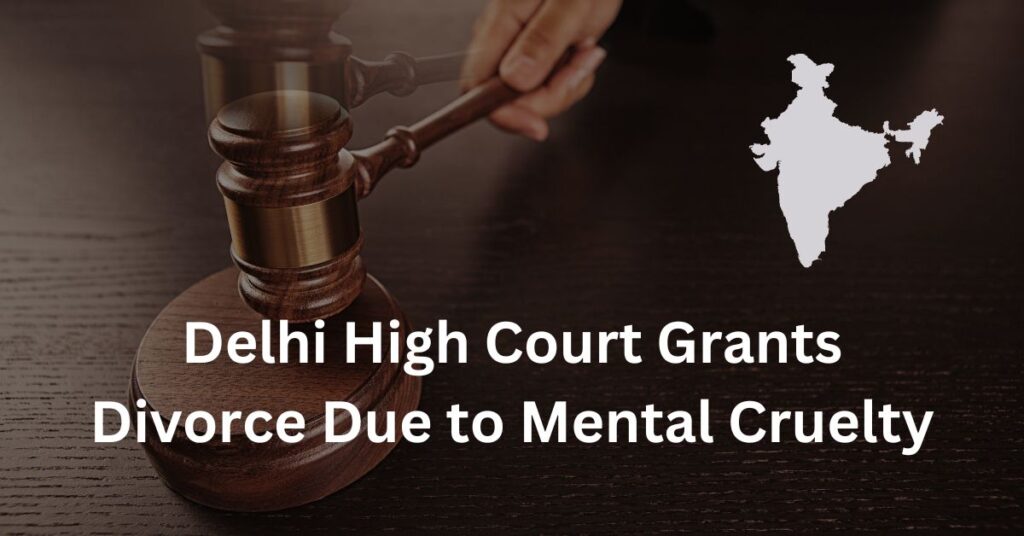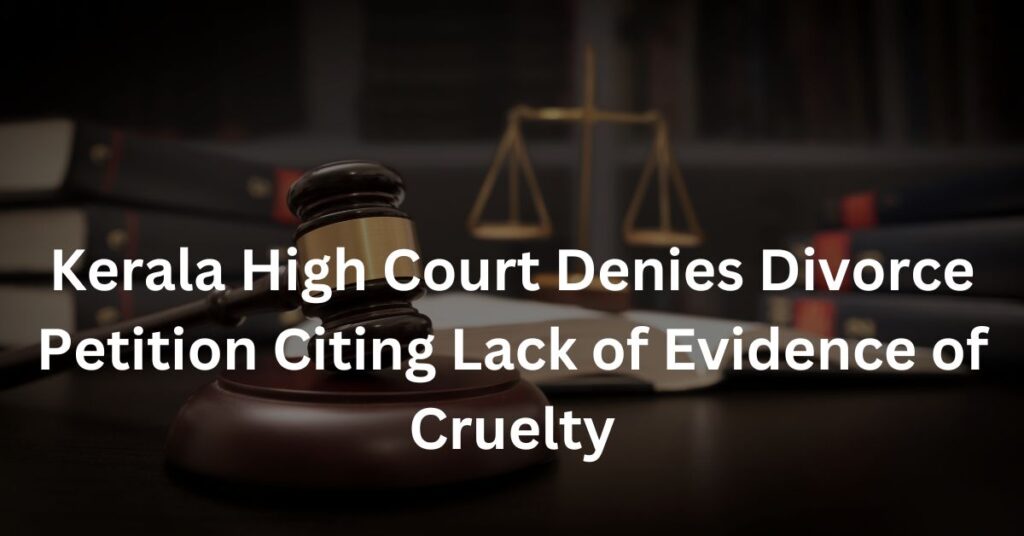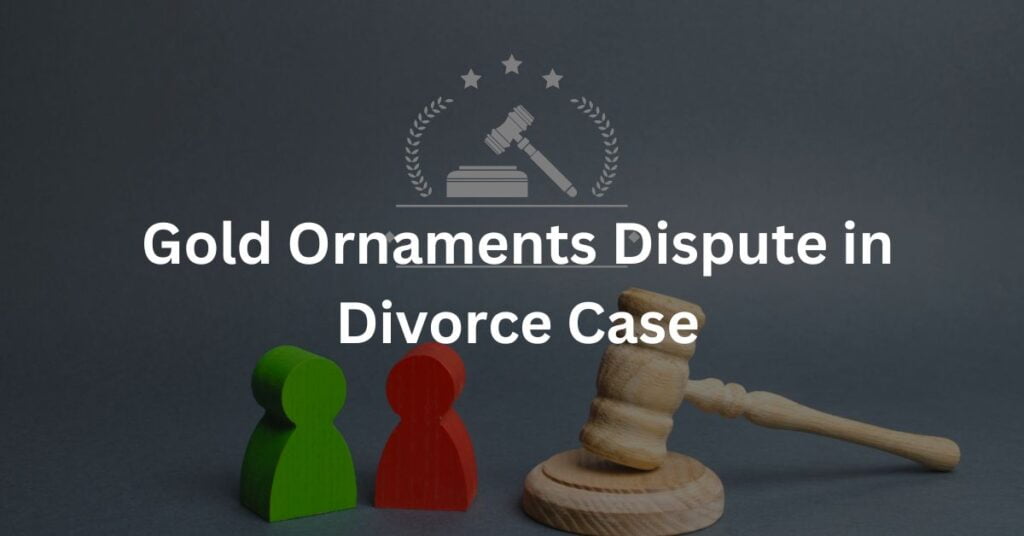New Delhi, September 5, 2023 – Hon’ble Delhi High Court upheld the divorce granted by the Family Court to the husband. This judgment has significant implications for divorce proceedings in India, particularly concerning the grounds of cruelty under Section 13(1)(ia) of the Hindu Marriage Act, 1955.
Table of Contents
ToggleMarriage and Early Life
Mamta and Pradeep Kumar entered into matrimony on April 30, 2006, following Hindu rites and customs. Their union was blessed with the birth of their son, Ashwin Kumar, on January 18, 2007.
Allegations of Cruelty
The crux of Pradeep’s case rested on allegations of cruelty by Mamta. He portrayed her as aggressive, quarrelsome, and violent in nature, not only towards him but also his family members. Mamta had a history of leaving the matrimonial home without prior notice, often leading to disputes. Notably, she engaged in altercations with Sh. Om Prakash, a close relative of Pradeep, as well as other visiting relatives. Furthermore, Mamta was accused of adamantly refusing to perform household chores.
Incidents Leading to Legal Actions
The situation escalated when, on December 8, 2008, Mamta left for her parental home after another quarrel with Pradeep. The following morning, her parents and brother, accompanied by three unidentified individuals, entered Pradeep’s house, forcibly taking away jewelry and valuable possessions. This incident resulted in a police complaint lodged by Pradeep.
Legal Proceedings
Mamta, in retaliation, filed a complaint in the CAW Cell against Pradeep and his family members, although she later withdrew it. She also initiated legal action under the Protection of Women from Domestic Violence Act, 2005, which she subsequently withdrew. Additionally, a petition under Section 125 CrPC was filed, with Pradeep directed to provide interim financial support, a responsibility he fulfilled. Pradeep also lodged a complaint under Section 156(3) of the Code of Criminal Procedure against Mamta and her family members, but this too was withdrawn following a compromise.
Divorce Petition
Facing a series of complaints and legal actions, Pradeep made the pivotal decision to seek a divorce on the grounds of cruelty. Mamta vehemently contested the divorce, alleging harassment and dowry demands as the primary reasons for her actions.

Family Court Judgment
The Family Court carefully examined the evidence and circumstances surrounding the case. While acknowledging that the marriage began positively, it found that Mamta’s behavior had caused sustained cruelty to Pradeep. The court observed that Mamta’s numerous complaints and the subsequent withdrawals created doubt about her claims. The judgment noted that the parties had lived separately since December 8, 2008, a period of nearly 15 years, and that reconciliation was improbable.
The court ultimately granted the divorce to Pradeep Kumar, citing ‘cruelty’ as the grounds for divorce. The verdict was based on the prolonged separation, allegations of cruelty, and the impossibility of reconciliation.
Appeal in High Court
Dissatisfied with the decision of the Family Court, Mamta preferred an appeal. The High Court, while evaluating the case, observed that the parties had lived separately since December 8, 2008, for nearly 15 years. The court also noted that the marriage had irretrievably broken down, and the differences between the spouses were irreconcilable. Importantly, the court emphasized that a prolonged period of separation itself could be a ground for divorce.
The judgment highlighted that filing multiple complaints, even if subsequently withdrawn, without justifiable reasons can amount to cruelty. The court referred to precedents where such unsubstantiated complaints were considered acts of mental cruelty. In this context, the court held that the husband had proved instances of cruelty suffered by him, which collectively demonstrated sustained mental cruelty over time.
Download the complete judgment here: MAT.APP.(F.C.) 12/2021. This downloaded judgment from Delhi High Court’s official website, can serve as a valuable resource for legal reference in ongoing cases as well.


